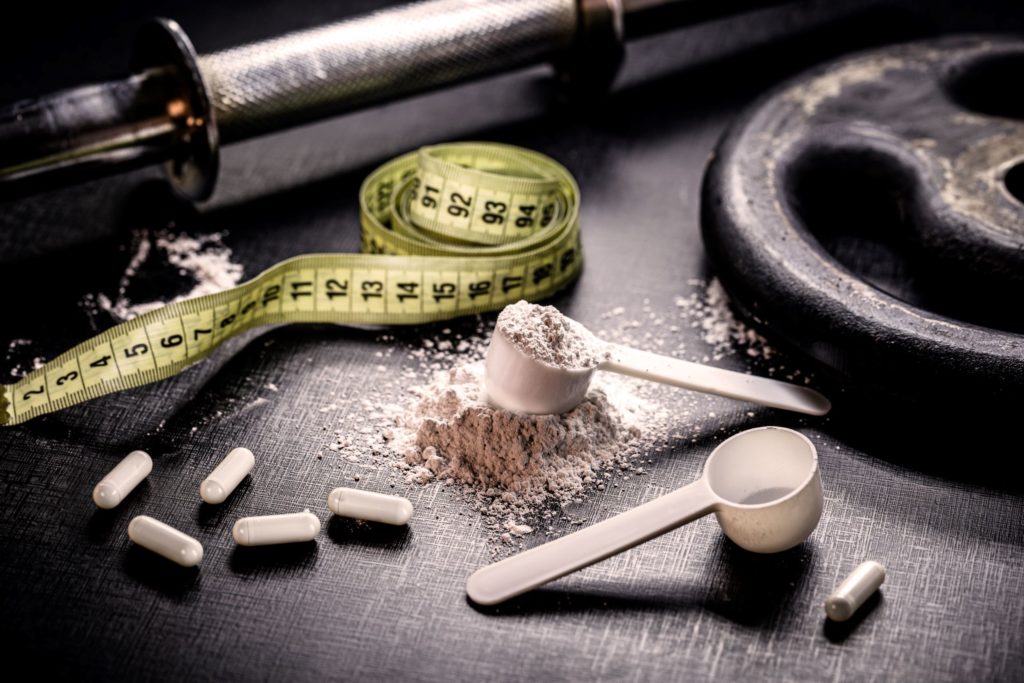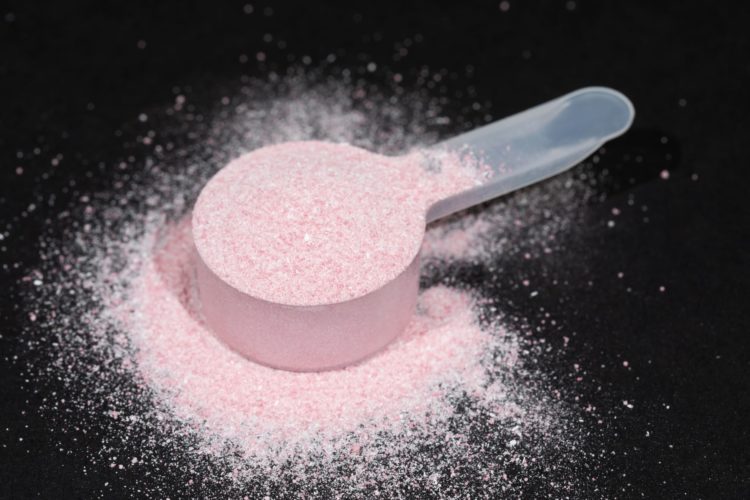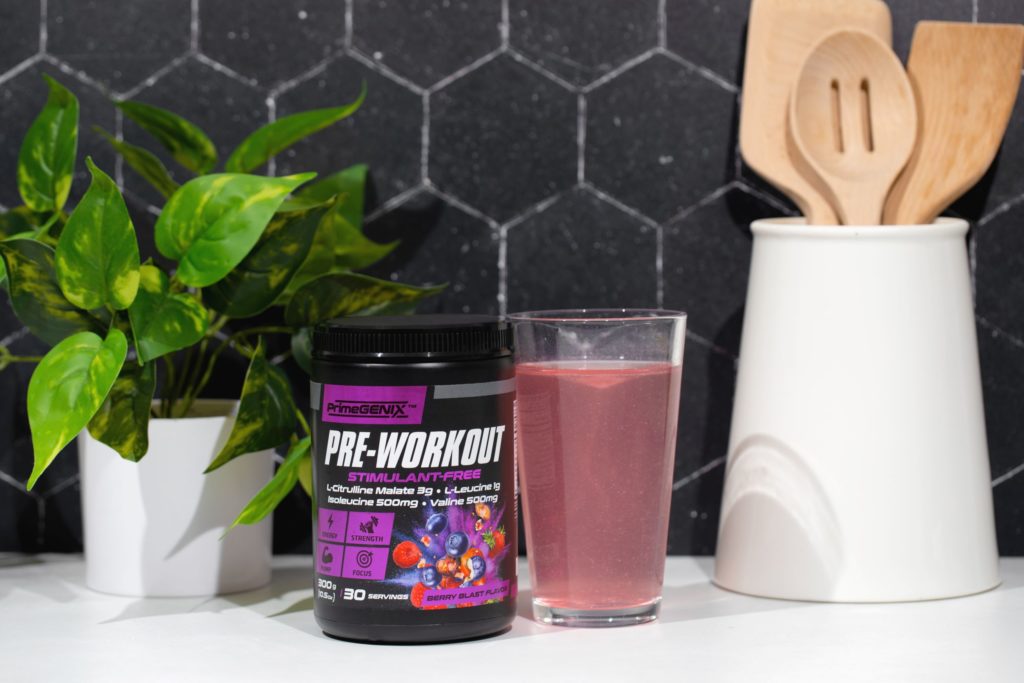The pre-workout market has become a feature of the supplement industry in the past decade. Every major supplement brand will offer a pre-workout, if not multiple iterations.
Pre-workout formulations typically come in powder form. This is due to the comprehensive supplement ingredients required to make a quality pre-workout. You simply could not fit that much into a pill.
Pre-workout supplements are unique in that they can be composed of a variety of ingredients. Two companies could have completely different formulations. This is why it’s important to be knowledgeable about ingredients so you can choose what’s right for you.
Benefits of a Pre-Workout Supplement

Energy
The primary reason most people purchase a pre-workout is to increase their energy. If a pre-workout contains a stimulant, it is likely in the form of caffeine.
Everyone has a unique sensitivity to the effects of caffeine. Some people experience anxiety and jitters with a tiny amount, while others can have multiple servings per day. Over time, your tolerance for caffeine will increase if you consume it regularly.
Caffeine may also increase thermogenesis and boost metabolism. It is also an appetite suppressant. This is helpful for users who want to lose weight or maintain weight loss. .
The energy benefits from a pre-workout are not limited to stimulants. Many pre-workouts contain vitamins and minerals which can increase energy, especially if you are deficient. It will not be the same stimulatory effect as caffeine, but will make you feel lively and energetic overall.

Mental Focus
Caffeine has been shown to increase alertness and wakefulness. It does so by inhibiting adenosine in the brain. The adenosine molecule is partially responsible for sedation and relaxation, particularly as the day goes on. It’s a natural part of the sleep-wake cycle.
Caffeine is similar to adenosine in structure, and essentially blocks adenosine from attaching to its receptor (temporarily). Caffeine has a half-life of about 6 hours. This means it takes 6 hours for half of the caffeine ingested to be removed from the body.
This goes to show that even after the noticeable effects of caffeine have worn off, it remains in your system. As a result, you should avoid having caffeine too close to bedtime so sleep quality isn’t compromised.
Certain pre-workouts contain ingredients specifically for mental focus called nootropics. While some people have experienced success anecdotally, research is still limited. Since they are relatively new to the market, there are still unknowns about their side effects and interactions with other supplements.

Muscular Endurance
Certain pre-workout ingredients can delay time to fatigue, thus increasing muscular endurance. When exercising, whether it’s lifting weights, running, or playing a sport, metabolic byproducts build up and cause you to slow down. Some people refer to this as the “burn.”
To a certain degree, this is inevitable. You simply can’t exercise forever. However, measures can be taken to increase endurance and have better workouts.
One of the byproducts of intense exercise is ammonia. Ammonia builds up in the muscle, which leads to a decrease in performance. Citrulline, a common ingredient in pre-workout supplements, helps to recycle and remove ammonia from muscle. This allows you to train longer and harder.
Muscle Pumps
Muscle pumps may seem like a superficial benefit from a pre-workout. But increased blood flow to the muscle being worked can help with the mind-muscle connection when lifting weights.
Some people struggle to feel the muscle contract for a certain exercise. Enhanced blood flow may make this process easier. The ability to feel the exercise is not just old bodybuilding folklore, it has real application to building muscle.
This is particularly important for bringing up lagging muscle groups. Everyone has strengths and weaknesses with their physique, even at the professional bodybuilding level. The ability to put tension on the muscle is an important key to growth.
This enhanced blood flow also carries nutrients and oxygen to the working muscle. This aids both workout performance and muscle growth.
Muscle Gain
Muscles grow as an adaptation to a stimulus. For most people, that stimulus is resistance exercise in the gym. While it may seem obvious, it’s important to not lose sight of this concept.
Muscle will not grow unless you give it a reason to.
We’re all guilty of going through the motions for a workout. For some people, however, this becomes habitual. Consistency is great, but you don’t get points for just showing up to the gym. To improve your body, you need to push it.
A pre-workout may not directly build muscle the way a protein supplement would. But if it aids your workout performance, it’s providing a tangible benefit. Better workouts = more muscle growth in the long run.

Are Pre-Workout Supplements Safe?
There is a certain perception around supplements due to them not being FDA approved. However, there are still FDA rules and regulations that must be followed by supplement companies. A reputable company will follow these guidelines and ensure that a quality product is placed on the shelves.
Supplement companies can go above and beyond by doing independent testing on their products. In addition, they can follow good manufacturing practices within the facilities that their supplements are made.
Beyond good manufacturing practices are the ingredients in the pre-workout supplements themselves. The bad press that pre-workout supplements sometimes receive is due to the stimulant content.
Some pre-workout supplements can have upwards of 400mg of caffeine per serving. In addition, they may contain other stimulants like yohimbine. Some people will even take multiple scoops of a pre-workout, which is typically the reason for any adverse response.
A normal pre-workout with a reasonable amount of caffeine is unlikely to cause any problems. A stimulant-free pre-workout is even less likely to cause issues.
What To Look For In A Pre-Workout
All pre-workouts are not created equal. It’s important for supplement consumers to be educated about what to look for in a pre-workout to choose the best option for them. What’s right for one person and their goals may not be the optimal choice for someone else.
Avoiding Proprietary Blends
On a supplement facts panel, you may find something called a proprietary blend. A proprietary blend shows the ingredients in a product, but not the exact amount of each one.
As a consumer, you want to know exactly what you’re getting, especially in a supplement. Proprietary blends are typically something you want to avoid. Companies that stand behind their formulations will not use proprietary blends in their products. Conceivably, a product could have great ingredients but in doses that are completely ineffective.

Choosing The Right Ingredients
With a clear fitness goal, you will be able to choose a pre-workout suited to your needs. Some people want to be wired and have intense focus. They may be willing to sacrifice performance-based ingredients for extra caffeine and stimulants.
Other people who want better workouts, muscle pumps, and strength gains will look for ingredients like creatine, citrulline, and arginine. These ingredients have clinical research showing their efficacy in the gym. Each person will have a unique response to a pre-workout supplement. Some trial and error may be involved in finding the right one.
Artificial Sweeteners
Most pre-workout supplements are low in sugar, if not completely sugar free. In order to flavor these supplements, companies will turn to artificial sweeteners.
While artificial sweeteners are generally safe to consume, some people may choose to avoid them for a variety of reasons. One common reason is that they experience stomach discomfort. Another is that they simply don’t like the taste of a specific type of sweetener.
In any case, a number of natural sweeteners can now be used in dietary supplements. Monk fruit and stevia are two natural sweeteners that you may find in flavored supplements like pre-workouts, protein powders, and amino acid powders.
Who Can Benefit From a Pre-Workout?
Anyone who wants to improve their exercise or sport performance can benefit from a pre-workout. Men and women over 18 years of age can use a pre-workout supplement.
A pre-workout can help invigorate your training and increase performance. It’s important to get the most out of each training session. Whether the goal is to increase endurance, get stronger, build muscle, or burn fat, a pre-workout can be beneficial.
FAQ
Can I Take a Pre-Workout If I’m Sensitive to Caffeine?
The caffeine content of a pre-workout can vary wildly. A pre-workout can contain 100-400mg of caffeine per serving. It is up to you to assess your tolerance and choose the right one. If you are unsure, it is best to start with half a serving or less and adjust from there.
If you are completely intolerant to caffeine, or just wish to avoid it for any other reason, a number of stimulant-free pre-workout options are available.
How Long Does a Pre-Workout’s Effects Last?
The duration of a pre-workout’s effects is dependent on the ingredients. As mentioned, caffeine has a half life of about 6 hours. Some people metabolize caffeine at a faster rate. However, caffeine’s actual stimulatory effects will last for a shorter period.
Nitric oxide boosters like citrulline and arginine last 1-2 hours. The length and potency of its effects are dependent on the dosage, your body type, and sensitivity to the ingredients.

When Is The Best Time To Take A Pre-Workout?
Pre-workout ingredients take some time to digest and assimilate in the body. As a result, a pre-workout should be taken 20-30 minutes before training.
Should You Take Pre-Workout On An Empty Stomach?
Some people choose to train fasted, while others enjoy a meal to help fuel their activity. The good news is that there is no hard rule on food intake and pre-workout supplementation.
Generally speaking, taking a pre-workout on an empty stomach would enhance its effects. Food can slow the absorption of the pre-workout ingredients, particularly caffeine. A pre-workout taken with food may increase the duration of its effects, but minimize the peak.
Can I Stack a Pre-Workout With Other Supplements?
A pre-workout can typically be stacked with any other supplement. Aside from caffeine, it’s unlikely that any ingredient would negate the effects of another supplement.
Nowadays, a pre-workout and protein powder are the foundation of many supplement stacks. The workout itself is where progress is made. It makes sense to optimize both the pre and post workout period with proper supplementation.


